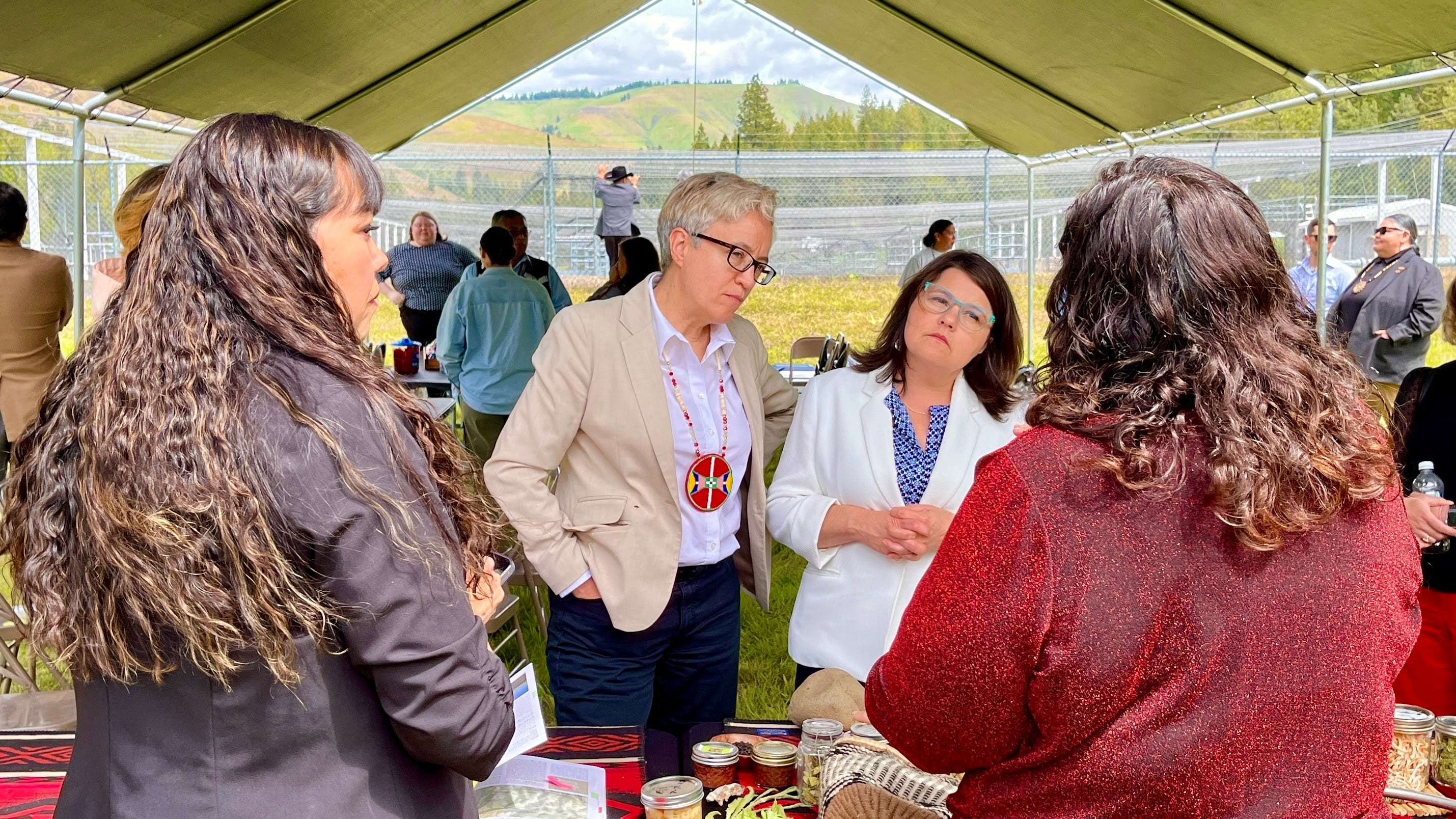First lady Aimee Kotek Wilson has ranged far and wide in the first 15 months of her wife’s administration, meeting with a variety of people who have interests before the state, her calendar shows. She’s gotten involved not just in governor’s staff meetings on behavioral health, as WW has previously reported, but is also taking meetings on civil commitment policy, corrections policy, the future of Measure 110, Oregon State Hospital and a variety of other topics—and even involved herself in personnel matters.
That’s a far busier and more substantive schedule than the governor’s office acknowledged a month ago when questions first arose about the first lady’s role.
“The governor has a standing weekly meeting with staff to discuss behavioral health initiatives,” Kotek’s spokeswoman, Elisabeth Shepard, told WW on March 23. “First lady Kotek Wilson has attended several meetings in the last year of the administration, in light of her professional experience as a social worker.”
But when the governor needed a new behavioral health adviser last year, for instance, one of the people who helped interview candidates, according to her calendar, was the first lady. And when Kotek hired Juliana Wallace for that position, Kotek Wilson’s calendar shows the first lady had a standing weekly call with Wallace.
That’s one of the many findings from a review of 15 months of Kotek Wilson’s calendar, which the governor’s office released April 26 pursuant to a public records request.
Also regularly on Kotek Wilson’s calendar: Oregon Health Authority behavioral health director Ebony Clarke, as well as representatives for Deloitte, a consulting firm that has multimillion-dollar contracts with OHA. Kotek Wilson’s calendars show she had bi-weekly meetings with the firm.
Kotek Wilson also met with Becky Hultberg, the CEO of the Hospital Association of Oregon, and with Multnomah County Judge Nan Waller, who presides over the county’s mental health court. Kotek Wilson held multiple meetings with Kathy Shumate, a manager at Multnomah County’s Behavioral Health Division. She met with Multnomah County Chair Jessica Vega Pederson and Commissioner Sharon Meieran. She met with employees at Oregon State Hospital and with corrections officials, with representatives of private companies that have or would like to have business before the state, including Providence Health & Services (repeatedly), Alamo Health Management (twice), a California-based mental health services provider, and with Janssen Pharmaceuticals, an affiliate of Johnson & Johnson.
It is unclear what the meetings entailed or whether they resulted in concrete actions being taken. But in Kotek’s office, as with previous governors or any elected official, the single most valuable commodity is the elected official’s time—everybody wants it. In the batch or more than 6,000 emails Kotek’s office released April 26, there is endless discussion of the requests to meet with Kotek, which far exceed the time available.
The emails also make it clear that Kotek regards the first lady as a close—perhaps her closest—adviser. “I’ve been catching up on my reading of reports, thinking about our behavioral health work for the year, and strategizing with the first lady,” Kotek wrote to her senior staff Jan. 17 in a typical email. Over and over again in the emails, Kotek spoke of “we” in terms of her partnership with the first lady.
The conflict that emails show existed within Kotek’s office over Kotek Wilson’s role involved a paradox. All of Kotek’s advisers sign ethics forms, agreeing to disclose potential conflicts of interest they might have. Those disclosures are important because the governor’s staffers represent the state when they meet with outside interests, ranging from for-profit corporations to more seemingly disinterested parties, such as county commissioners or state hospital officials. But, of course, most people want something from those meetings: money, political support or resources of some kind. That reality is present in the memo that Abby Tibbs, then Kotek’s special adviser, wrote March 15.
“The first lady should sign all the office policies and procedures ASAP,” Tibbs wrote. “There are significant issues of public trust and the obligation to the people of Oregon.” A week after Tibbs wrote that email, Kotek’s office announced her departure and that of two other senior staffers who had also pushed for greater structure around the first lady’s role.
Kotek declined today to comment on the emails showing staff communications about the first lady. She says there’s nothing wrong with her wife’s having met with a variety of interests.
“The first spouse is a public official, as defined under ORS 244.020 (15),” Kotek says. “The first lady is an unpaid volunteer who brings professional and lived experience to an issue of top concern for Oregonians. As governor, I have sought out that expertise, at times, in appropriate ways.”

